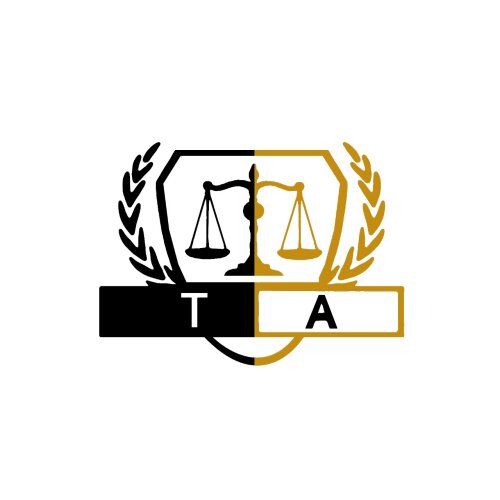Best Adoption Lawyers in India
Share your needs with us, get contacted by law firms.
Free. Takes 2 min.
Free Guide to Hiring a Family Lawyer
Or refine your search by selecting a city:
List of the best lawyers in India
About Adoption Law in India
Adoption in India is a legal process that allows individuals to permanently and legally take on the responsibility of raising a child who is not biologically their own. The legal framework for adoption is governed by two primary laws: the Hindu Adoption and Maintenance Act (HAMA) 1956, primarily for Hindus, and the Juvenile Justice (Care and Protection of Children) Act 2015, which is applicable to all citizens irrespective of religion. The adoption process aims to ensure the welfare and rights of the child while maintaining legal procedures that ensure transparency and fairness.
Why You May Need a Lawyer
Adoption is a complex legal process that involves numerous steps and careful documentation. Here are some common situations where legal help may be necessary:
- Navigating the application process and ensuring eligibility criteria are met.
- Understanding and fulfilling legal documentation requirements.
- Managing disputes or complications in the adoption process.
- Protecting the rights of the adoptive parents and the child.
- Advising on international adoptions and the related legal requirements.
Local Laws Overview
The key aspects of adoption laws in India that prospective adoptive parents should be aware of include:
- The Central Adoption Resource Authority (CARA) is the primary statutory body under the Ministry of Women & Child Development in India that oversees adoptions.
- HAMA 1956 applies to Hindus, Buddhists, Jains, and Sikhs, with procedures specific to this group.
- The Juvenile Justice (Care and Protection of Children) Act 2015 is applicable for all individuals, offering guidelines for adoption of orphaned, abandoned, and surrendered children.
- Eligibility criteria for adoptive parents include age, marital status, and health among other factors.
- There are regulations regarding the physical and financial capability to care for the adopted child.
Frequently Asked Questions
What is the legal age for adopting in India?
The minimum age for adopting a child in India is 25 years. The maximum age varies depending on whether the individual is married or single and the child’s age.
Can a single person adopt a child in India?
Yes, single individuals can adopt children. However, single males are not eligible to adopt a girl child.
How long does the adoption process take?
On average, the legal adoption process can take anywhere from a few months to two years, depending on various factors.
Are there any post-adoption requirements?
Yes, post-adoption follow-up reports are required until the child turns 18 to ensure their well-being.
Can NRIs adopt children from India?
Yes, Non-Resident Indians (NRIs) can adopt children from India, subject to specific eligibility criteria and regulations.
What documents are required for adoption?
Common documents include proof of identity, marital status, income proof, medical fitness reports, and approval from a registered adoption agency.
What is the role of CARA in the adoption process?
CARA facilitates the adoption process, maintains transparency, works with accredited agencies, and ensures compliance with laws.
How is the child's best interest safeguarded during adoption?
The adoption laws and procedures prioritize the child's best interests, ensuring they are placed in safe and nurturing environments.
Can an adopted child inherit property from the adoptive parents?
Yes, once the adoption process is legally completed, the adopted child is entitled to inherit from the adoptive parents as a biological child would.
Is the adoption process different for different religions?
Yes, the process can vary depending on religious beliefs and personal laws, with different jurisdictions and authorities involved.
Additional Resources
Here are some resources and organizations that can assist with the adoption process in India:
- Central Adoption Resource Authority (CARA) - The central authority for child adoption in India.
- Ministry of Women & Child Development - Provides guidelines and support for child welfare.
- Non-Governmental Organizations (NGOs) - Many NGOs work in the field of child rights and adoption, offering assistance and guidance.
- State Adoption Resource Agencies (SARAs) - Coordinate adoption efforts at the state level.
Next Steps
If you require legal assistance in the adoption process, consider the following steps:
- Consult with a lawyer specializing in family law or adoption to gain insights into the legal process.
- Assess your eligibility and gather necessary documents as per the guidelines.
- Register with CARA’s online portal or approach a recognized adoption agency.
- Attend counseling or training sessions if required to better understand the responsibilities and challenges of adoption.
- Stay informed about local laws and any recent changes in adoption regulations to ensure compliance.
Lawzana helps you find the best lawyers and law firms in India through a curated and pre-screened list of qualified legal professionals. Our platform offers rankings and detailed profiles of attorneys and law firms, allowing you to compare based on practice areas, including Adoption, experience, and client feedback.
Each profile includes a description of the firm's areas of practice, client reviews, team members and partners, year of establishment, spoken languages, office locations, contact information, social media presence, and any published articles or resources. Most firms on our platform speak English and are experienced in both local and international legal matters.
Get a quote from top-rated law firms in India — quickly, securely, and without unnecessary hassle.
Disclaimer:
The information provided on this page is for general informational purposes only and does not constitute legal advice. While we strive to ensure the accuracy and relevance of the content, legal information may change over time, and interpretations of the law can vary. You should always consult with a qualified legal professional for advice specific to your situation.
We disclaim all liability for actions taken or not taken based on the content of this page. If you believe any information is incorrect or outdated, please contact us, and we will review and update it where appropriate.
Browse adoption law firms by city in India
Refine your search by selecting a city.
















